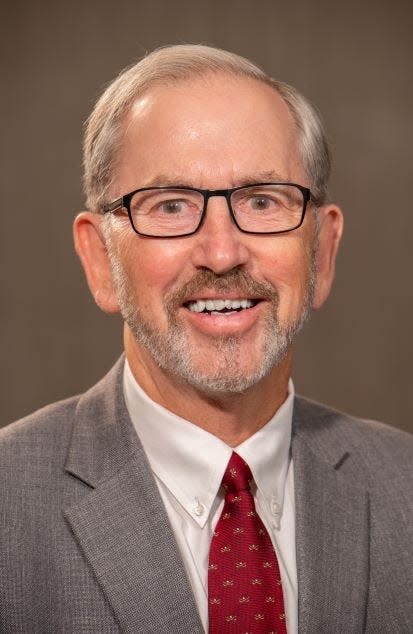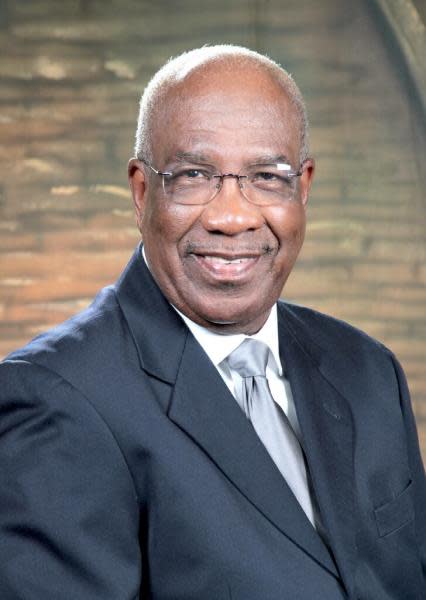Worry and hope surround proposed Summa Health sale to HATCo

A capital venture company’s plan to buy Summa Health and turn it into a model of modern health care both worried and thrilled people in Northeast Ohio.
James Hardy, Akron's Ward 8 councilman, said he's "philosophically opposed to private equity owning health resources" because its primary obligation is to investors, not the community. Hardy, who has a master’s degree in public health with a concentration in health policy and management, said he doesn’t blame Summa.
“Health care in the U.S. is a mess,” he said. “Selling or merging with someone was inevitable.”
Yet Hardy forecast a “gradual loss of health care access that will inevitably happen in a for-profit scenario.”
Tom Campanella, the health care executive in residence at Baldwin Wallace University, is much more bullish – both about the possibilities at Summa and about Dr. Marc Harrison, who leads Health Assurance Transformation Corp. (HATCo), the health care company that plans to buy Summa.
HATCo, which launched in October, is owned by General Catalyst, one of the largest venture capital firms in the U.S.
“The hospital sector is like a house of cards…and it is really fragile,” Campanella said.

Merging or selling to another nonprofit hospital doesn’t guarantee survival because most hospitals and health care systems are mired in an outdated system he calls “sick care.”
How hospitals make money
The traditional fee-for-service model makes money by charging fees for services − things like office visits, MRIs or hospitalizations.
The more services they provide, the more money they make.
But a revolution is coming – and in some cases, like with Medicare Advantage, it's already here.
In some models, instead of fee for service, health care providers get paid a flat rate per patient per year.
That offers a built-in incentive to keep patients healthy because the less services they need, the more money a hospital system can keep, Campanella said.
The challenge for all health care providers is changing from an entrenched fee-for-service model to wellness care, which requires collaboration and rethinking patient care.
Summa has already started to evolve into that sort of system – something that made it attractive to HATCo – but it needed HATCo’s financial investment and infusion of technology to speed up the transformation over the next five years, Summa leaders said this week.
HATCo intends for Summa to ultimately serve as a blueprint showing other hospital systems in the U.S. and around the world how they can evolve.
Campanella expected Summa employees to have mixed reactions about the changes.
“Some will say, ‘Wow, this is great, we’re going to be part of the new model,’ and others will say, ‘Oh my God, the sky is falling,’” he said.
“It’s almost like, get on board or get off the ship because we’re going in this direction,” Campanella said.
At the same time, Summa might attract new young and middle-aged health care workers from across the country who will see the Akron-based hospital system as a place they want to work.
“They’ll see this creating opportunities to be on the ground floor, which could carry them forward in their careers,” Campanella said. “They could say, 'I worked at Summa and I was there from the beginning'” of the transformation with HATCo.
That echoes Harrison, who said he’ll know they’re successful when people are clamoring to work at Summa.
Campanella said Harrison, a former pediatric emergency medicine physician and administrator at the Cleveland Clinic, is sort of a rock star with some of his former students who have become physicians.
“They say how sharp he is…an impressive, innovative guy,” Campanella said. “Everything I’ve heard about him shows that he understands hospitals and health care and what’s broken and what needs to be done.”

'I think it's a way that Summa can move forward'
Akron’s Ward 5 Councilman Johnnie Hannah said Wednesday that a Summa representative assured him there would be no layoffs with the sale.
"I think it's a way that Summa can move forward without losing jobs, and providing better health care for the Akron community," Hannah said. “When companies are in trouble financially and they need assistance as far as better serving the community, then if it's alright with that company or institution to go forward. I see no problem with it whatsoever."
Hannah is meeting Friday with a Summa representative to learn more about the proposed deal.
Though Hardy expressed concern about Summa switching to a for-profit model, Campanella said there’s little difference between how for-profit and nonprofits work beyond charity care.
Summa President and CEO Dr. Cliff Deveny said this week that HATCo remains committed to the charity care Summa provides.
Additionally, profits from the sale of Summa will go into a community foundation that will be used to support general health in Greater Akron. He did not specify how large the foundation is but said it would be comparable to the GAR Foundation, which spends about $7 million each year on Greater Akron nonprofits.
Hardy, who left his job at Akron City Hall to become a senior program officer at the Robert Wood Johnson Foundation, remained dubious.
Hardy said it's common to put the proceeds of such a sale into a health-focused foundation. That's how, for example, the Barberton Community Foundation began.
“But unless the plan is to spend down those dollars on health equity, I fail to see how another philanthropic institution will replace the gradual loss of health care access that will inevitably happen in a for-profit scenario," Hardy said.
This article originally appeared on Akron Beacon Journal: Venture capital HATCo plans to buy, transform Akron Summa Health

